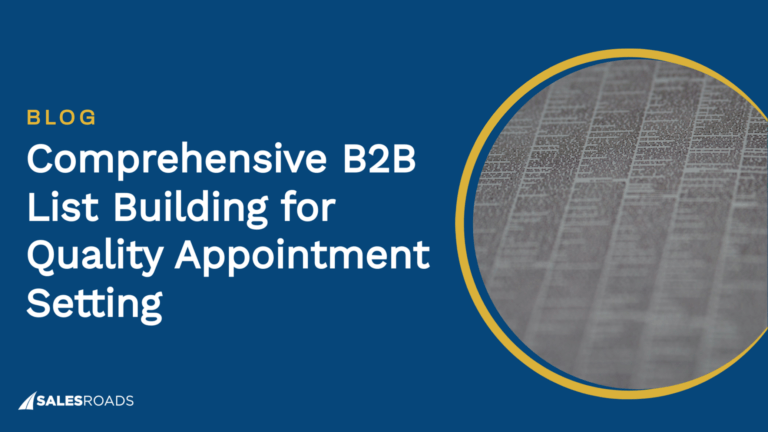Sales leaders play a significant role in coaching and developing critical skills in their employees. SDRs with the right skill set enable better conversations and build stronger relationships, increasing revenue and accelerating business growth.
As your company evolves, your sales team must keep up with new trends and best practices in your market. Encouraging salespeople under your supervision to be enthusiastic about professional development will make them more likely to excel and close better deals.
15 Sales Skills to Develop
Sales professionals need a combination of hard and soft skills to navigate through different scenarios. Here are 15 must-have skills for sales and business development personnel and how to develop them:
- Communication
- Prospecting
- Business acumen
- Questioning
- Social selling
- Objection handling
- Negotiation
- Time management
- Critical thinking
- Teamwork
- Product knowledge
- Tech savviness
- Content marketing
- Segmentation and personalization
- CRM and pipeline management
Communication
Communication skills are essential to engage prospects in conversations, build relationships with them, and uncover their pain points. Salespeople must learn to share valuable information orally and in writing.
Tip: Role-playing exercises can help you make room for mock conversations. Evaluate value messaging with AI coaching tools and assess written communication for emotions, context, and word selection.
Prospecting
A sales expert must be able to recognize viable business opportunities and take action to drive purchases. Identifying and qualifying potential clients is critical for sales, as bad leads also come at a cost.
Tip: Include prospecting courses in your onboarding and training curriculum, and develop a prospecting strategy to generate quality leads.
Business acumen
A sales representative’s business acumen influences their ability to close deals. Sales and business development personnel with strong industry knowledge make better decisions for their companies.
Tip: Identify topics that sales reps need to know about your industry and collaborate with subject matter experts to create training content.
Questioning
A salesperson must ask the right questions to discover prospects’ pain points and identify market opportunities. Using open-ended questions1 to guide conversations with leads is one way to improve this skill.
Tip: Tutor your sales team on discovery through role-playing activities and difficult sales scenarios.
Social selling
Social media platforms are a haven for business opportunities. Salespeople should have professional profiles and be proficient in lead generation and follow-up strategies through these channels.
Tip: Create a training resource on social media lead generation.
Objection handling
Objections are common in sales, and knowing how to handle them is vital. Sales reps should learn to solicit feedback when prospects object to offerings, as it helps to discover new information that can improve service delivery and enhance professional development.
Tip: Practice your company’s most common objections with your team and allow innovative solutions.
Negotiation
Reps must hone strong negotiation skills to close complex deals. Your sales team should learn to protect a product’s value and resist buyer pressure for discounts.
Tip: Include negotiation tactics in onboarding and weekly team meetings.
Time management
Due to the demanding nature of the job, time management is a necessary skill for salespeople. The most effective sales professionals organize their tasks to maximize performance and meet deadlines.
Tip: Try informal coaching for SDRs struggling with time-based tasks.
Critical thinking
Your sales team must think on its feet every day while interacting with multiple personas. Each prospect has unique problems they need to solve. The ability to provide solutions to them is the hallmark of a great salesperson.
Tip: Discuss difficult sales situations during team meetings.
Teamwork
Sales is a collaborative effort, and reps rarely succeed on their own. Team players with the right attitude can advocate for deals that benefit both the client and the company.
Tip: Introduce team building and bonding tasks/projects.
Product knowledge
Clients expect representatives to answer all of their questions, so successful salespeople are product experts.
Tip: Add a product/service knowledge area to onboarding and regular training programs.
Tech savviness
Technological tools are evolving to augment the sales process. Salespeople must understand the tools in their sales stack and how to use them to increase productivity.
Tip: Many tech tools have deep help centers and learning courses to help users become proficient with the software.
Content marketing
Your sales team should understand what types of content their prospects find valuable and interesting, as content is a vital element of lead generation.
Tip: Arm your sales team with case studies, 1-sheeters, and other sales enablement materials they can share with prospects directly and via social media.
Personalization
Although buyer personas may be similar, clients are inherently different. A top salesperson can notice a client’s peculiarities and provide tailor-made offers they cannot refuse.
Tip: Coach your sales team on segmentation, buyer research, and tailor-made offers.
CRM and pipeline management
The best salespeople follow prospects through the pipeline until they become repeat customers. Pipeline management tools can help, but your team must understand how to use lead information to move them smoothly through the funnel.
Tip: Incorporate CRM techniques into onboarding and sales training.
How can Sales and Business Development Staff Improve Their Performance?
Sales and business development employees can ramp up performance by learning these simple and easy-to-implement habits:
- Set personal goals: Setting skill-based and outcome-based goals demonstrates a salesperson’s willingness to grow. Skills-based goals are set in response to personality flaws that affect sales, such as poor time management. Result-based goals are set from feedback on performance, like the number of closed deals.
- Maximize training opportunities: Salespeople are lifelong learners who must be willing to undergo ongoing training. Sales training courses and certifications prepare professionals to execute their duties better and improve performance.
- Develop listening skills: Active listening can help you understand your client’s needs and make them feel valued. Customers are more likely to trust salespeople who listen and focus on their needs.
- Think like your customer: As a salesperson, you must empathize with your clients and put yourself in their shoes at all times. Understanding their points of view enables you to focus on solving their problems before profiting from them.
- Practice closing techniques: You will come across difficult scenarios in your sales career, and training for them beforehand can distinguish you from your peers. Practicing closing techniques is a great way to prepare for complex sales.
- Be honest: Clients frequently recognize the exaggerations and sugarcoating that some salespeople do. Don’t make promises you can’t keep or offer features that don’t exist. While this may result in a quick sale, it breeds negative feedback and poor business in the long run.
- Look for mentorship and peer support: Speak with senior colleagues about common challenges and schedule practice time. Mentors and peers can also hold you accountable for the personal development goals you set for yourself.
- Take breaks: Many salespeople suffer from burnout and exhaustion as a result of not taking time to relax. Increased sales activity boosts revenue, but breaks improve focus and generate fresh ideas.
Research shows that people who take restorative breaks2 are more productive than those who don’t.
Bottom Line
Sales teams must keep skills up to date to remain relevant in the industry and maintain profitable outcomes for their companies. Top-performing sales and business development professionals learn key habits to improve results and sustain professional growth.
To generate higher revenue, sales leaders can encourage business staff to hone core sales skills and inculcate the habits of successful salespeople.









